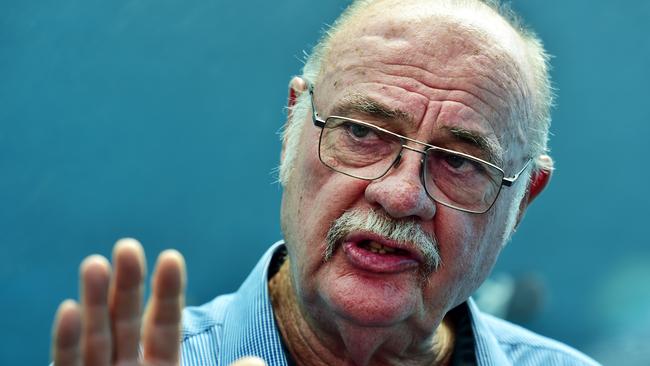Great Barrier Reef MP Warren Entsch urges climate spending
Great Barrier Reef special envoy Warren Entsch has urged the federal government to make climate change spending a major part of its economic recovery plan.

Great Barrier Reef special envoy Warren Entsch has urged the federal government to make climate change spending a major part of its post-COVID-19 economic recovery plan.
In his six-month report to Environment Minister Sussan Ley, the north Queensland MP sounded the alarm about future reef health and joined a global push by green groups to keep climate change action high on the agenda, despite the pandemic.
Mr Entsch said he was concerned about the threat to the reef posed by climate change and would continue to lobby Ms Ley and Energy Minister Angus Taylor to act.
Ms Ley said Mr Entsch was “doing an outstanding job in working with communities and stakeholders across the Great Barrier Reef … He highlights the absolute importance of investing in the environment and in the Morrison government maintaining strategies to reduce global emissions, and that is exactly what we are doing.”
In his report, Mr Entsch said COVID-19 represented a unique opportunity for policy reform. “I believe it is an important time to consider significant policy reforms and not just those seen as politically safe and expedient,” he said.
He said it was not a question of “black and white economics” and that government should “consider more closely the societal and environmental impacts of our decision-making’’.
“We need to harness bold ideas that will propel us forward in this brave new world,’’ he said.
“Whether it is overhauling taxation and fiscal federalism, a faster transition to renewables, reviewing the viability of fossil fuel subsidies, increasing support for low-emissions industries and perhaps even reconsidering the nuclear moratorium.’’
Mr Entsch said he agreed the government should pursue a “growth-orientated response” but it “must not accept a scaled-back response to climate change”.
“We know unequivocally, that climate change is the single greatest threat to the long-term health and future of the Great Barrier Reef,” he said.
“Australia’s efforts to reduce emissions alone won’t make an appreciable difference to global temperature rises, but the combined emissions of Australia and other similar-sized emitters (less than 2 per cent) make up 40 per cent of global emissions.’’
The Australian Marine Conservation Society welcomed Mr Entsch’s report. Spokeswoman Elise Springett said bolstering clean energy projects that created jobs would show the world Australia was serious about tackling global warming and the environments it impacted on.




To join the conversation, please log in. Don't have an account? Register
Join the conversation, you are commenting as Logout